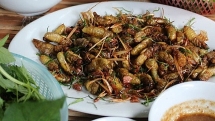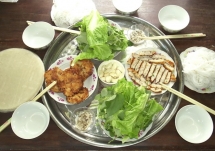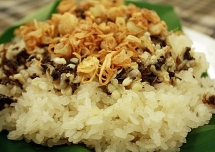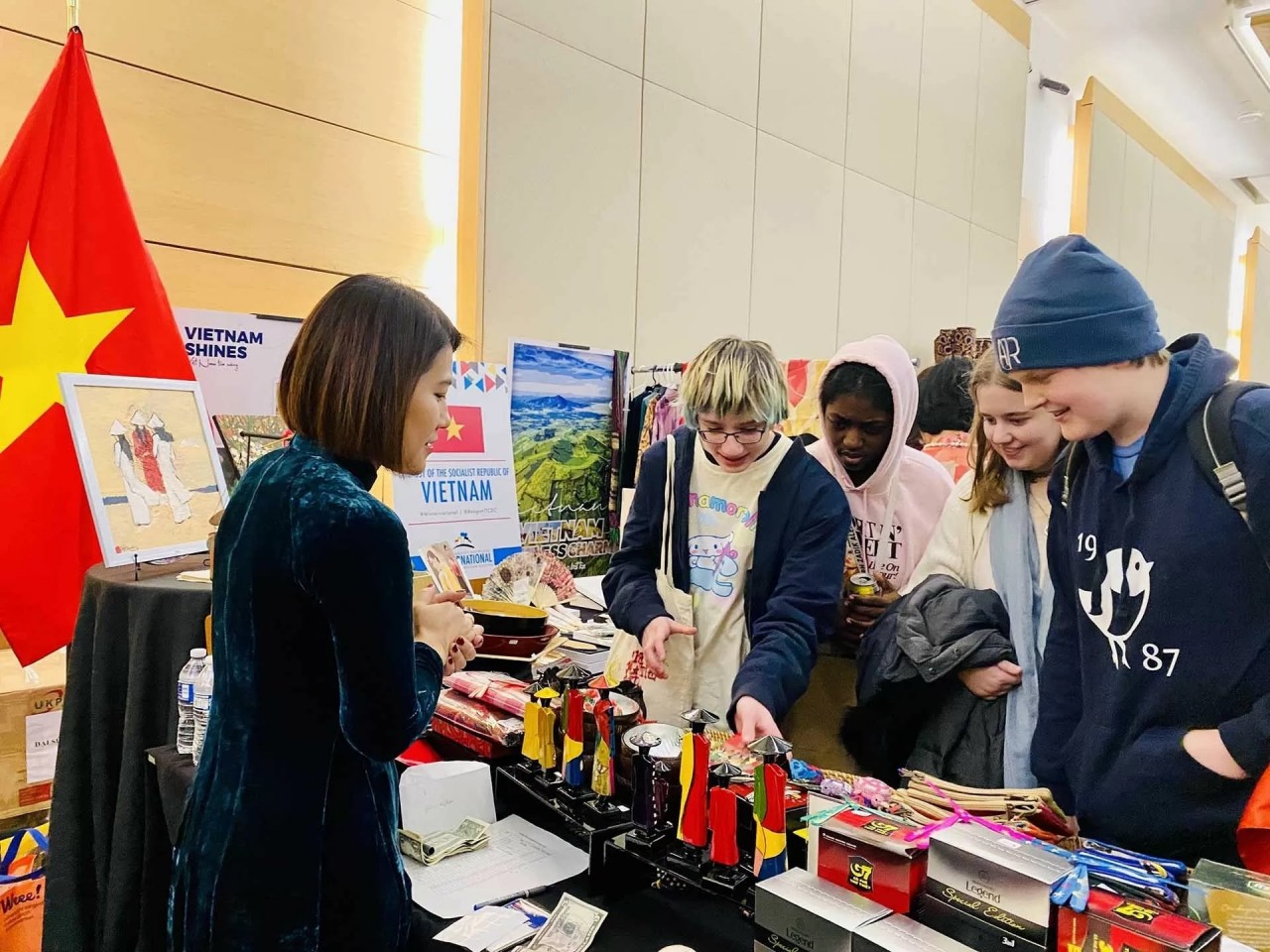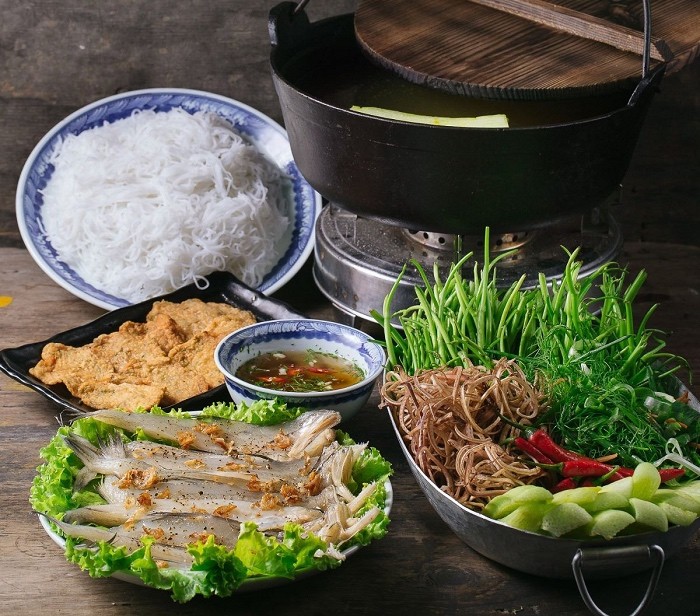Banh Gio - Rice cake with herbal ash, a Vietnam’s delight
| Dried milk cicadas, the taste of Son La | |
| Cuttlefish Egg Cake - the delicacy of in Ca Mau | |
| Steam glutinous rice with ant egg: an exotic taste for foodies |
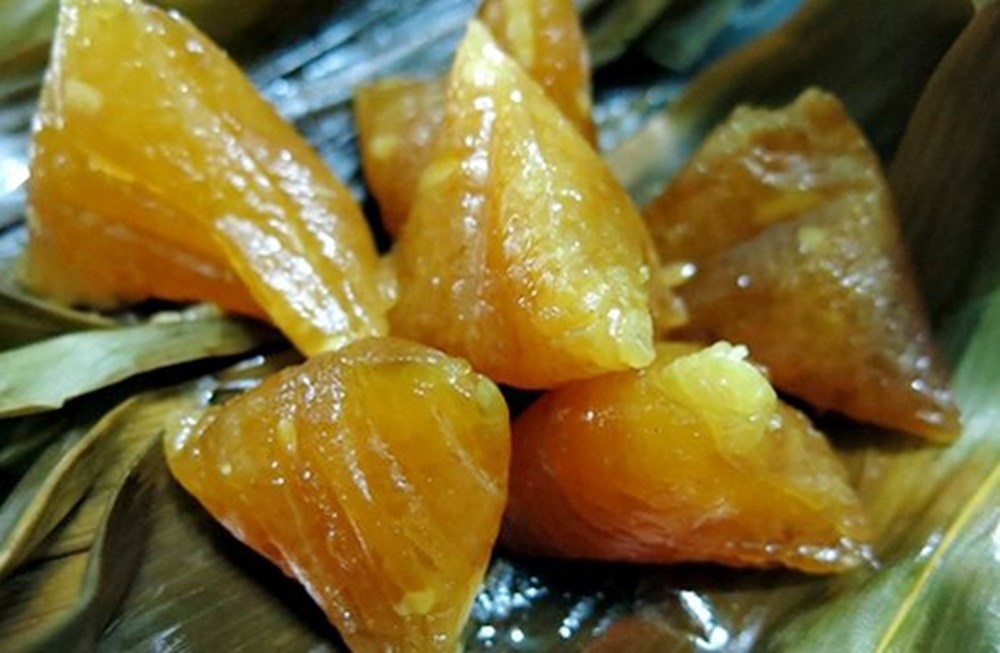 |
| Banh gio is favored by generations of foodies (Photo: Meo Vat) |
Banh gio – A sophisticated cake in processing
The name “banh gio” or “banh tro” comes from the way this cake is processing because to make this cake, people soak sticky rice in ash water. The cake with ash water sounds not hygienic; however, in contrast to your thought, it is really a healthy food since the water is made of herb ash.
Banh gio has a crystal amber color and to make this crystal-like color is not easy.
Rice to make banh gio must be selected carefully. The grains are round, short and nearly the same size. The new rice gives the cake a pleasant fragrance.
Ash water to soak the rice is the mixture of herbal ash. These herbs contain the skin of grapefruit, mistletoe leaves, and sticky rice straw among others. They are dried in the sun then burnt to dissolve easily in water. Ash water is very important to create the color as well as the flavor of the cake. A little bit pure limewater is added to soften the rice. The amount of limewater in ash water also decides the taste of the cake.
Sticky rice after being rinsed with the cold water several times to get rid of bran will be soaked in ash water overnight. The grains will turn into yellow color as the color of turmeric.
The rice after a night in ash water will be wrapped in the banana leaves or dong leaves and tied with bamboo strings. Depend on the place where it is made, the cake is in different shapes. In the North, it is common to see the cake with a long shape of about 15cm, while in the South, it is often in the shape of a pyramid.
The cake is cooked with the hot steam of boiling water for 1 or 2 hours. The cooked cake is fished out and soaked in cold water to keep the green color of the leave and make the cake cool down.
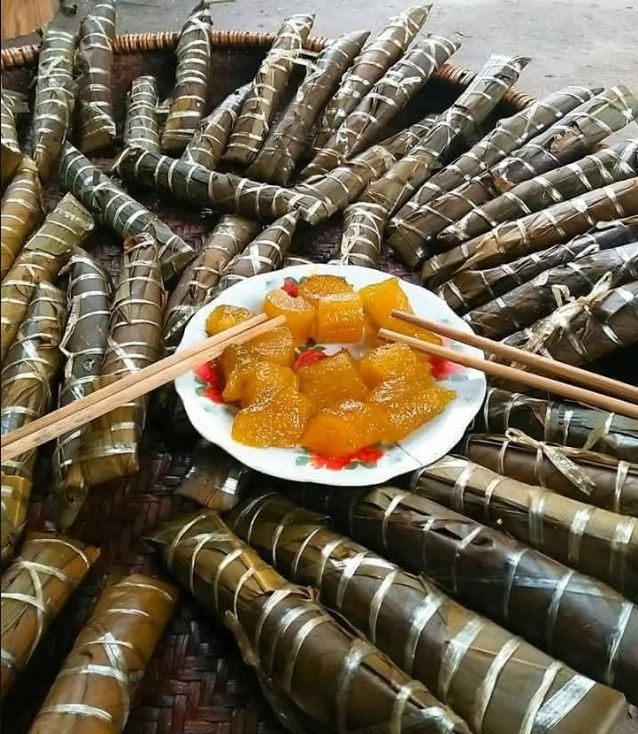 |
| The cake is wrapped by dong leaves on the outside (Photo: HaLong Cruise center) |
Enjoy "banh gio" and the lesson on being feminine
The finished product must have a charming amber color. The cake is so sticky and chewy that the bamboo strings tied around the cake must be used to cut it into small pieces. Banh gio is accompanied with molasses.
Banh gio has a plain taste but it is not tasteless. This sticky cake seems to cool the whole body after one bite with the aroma of the herbs.
Molasses cannot be replaced by sugar. That alternative will make the cake no longer smooth.
Banh gio is not a dish for people in a hurry. To fully feel the flavor and smell of the cake, people have to dip the small piece into molasses, take small bites and chew slowly.
Enjoying banh gio is also a lesson for the maidens to be careful and polite in eating and drinking. Opening the leaves wrapping the sticky rice cake, cutting it into equal pieces and gently dipping them in molasses without dripping even one drop all require the skills and attention.
Banh gio is also a Hanoi traditional food whenever the Dragon Boat Holiday comes. On the fifth of lunar May, people eat banh gio to wish good health for the whole year. This tradition is not only an old custom but also based on science. This kind of fat-free and sugar-free cake is really healthy food.
| Recommended places for trying Banh gio in Hanoi: Banh gio Hai, Hom market, No. 79, Hue street. Banh gio Homefood, No. 19, Truc Khe street and No. 26, Tran Binh Trong street. Banh gio in the Dong Xuan Market alley. Thanh Loan Food, No. 103, Quan Thanh street. |
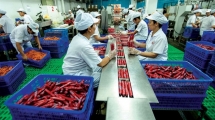 | Vietnamese food processing firms raise production, take actions to prevent COVID-19 COVID-19 pandemic has caused food processing firms in HCM City to raise production and take prompt actions to ensure workers' health safety. . |
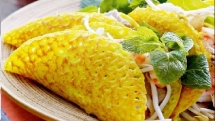 | How to make ‘bánh xèo’ (Crispy Vietnamese Crepes) Bánh xèo – also known as crispy Vietnamese pancake, crepe or sizzling cake – is a famous street food which is widely believed to originate ... |
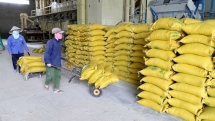 | Vietnam to stock 190.000 tons of rice for food security amid COVID-19 Vietnam's General Department of State Reserves plans to have 190,000 tons of rice in storage by June 15 to ensure the country has enough food ... |
Recommended
 Handbook
Handbook
Vietnam Moves Up 8 Places In World Happiness Index
 Handbook
Handbook
Travelling Vietnam Through French Artist's Children Book
 Multimedia
Multimedia
Vietnamese Turmeric Fish among Best Asian Dishes: TasteAtlas
 Handbook
Handbook
From Lost to Found: German Tourist Thanks Vietnamese Police for Returning His Bag
 Handbook
Handbook
Prediction and Resolution for the Disasters of Humanity
 Handbook
Handbook
16 French Films To Be Shown For Free During Tet Holiday In Vietnam
 Handbook
Handbook
Unique Cultural and Religious Activities to Welcome Year of the Snake
 Handbook
Handbook

